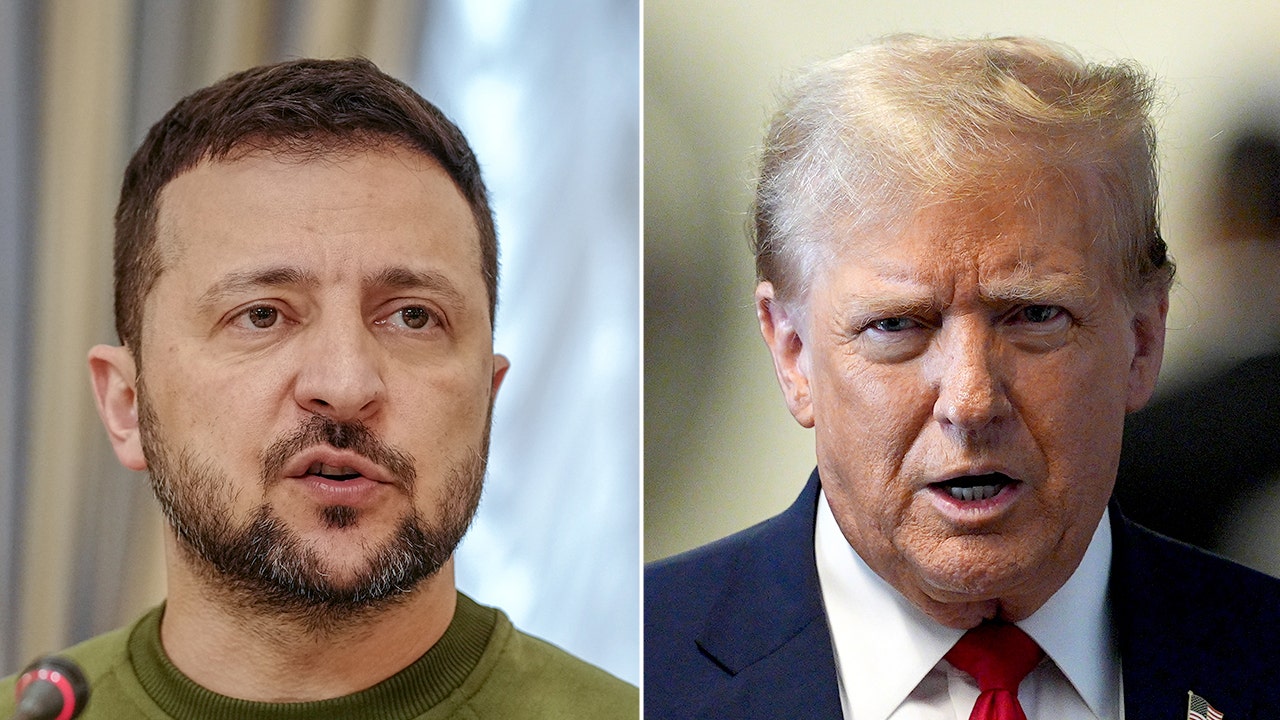Politics
Trump calls Ukraine’s Zelenskyy a ‘dictator without elections’ as rift widens

Contextualizing the Conflict: The Russia-Ukraine War and Global Involvement
The Russia-Ukraine war has been a defining geopolitical conflict of the modern era, with far-reaching consequences for global stability, economies, and human lives. Since its escalation in February 2022, the conflict has drawn international attention, with nations and leaders taking sides, providing aid, and attempting to mediate a resolution. The United States, under both the Trump and Biden administrations, has played a significant role in shaping the narrative and providing support to Ukraine. However, recent developments have highlighted growing tensions and differing approaches among global leaders, particularly between former U.S. President Donald Trump and Ukrainian President Volodymyr Zelenskyy.
The Condemnation of Zelenskyy: A Leader Under Fire
In a recent statement on his social media platform, TRUTH Social, former President Donald Trump leveled harsh criticism at Ukrainian President Volodymyr Zelenskyy, describing him as a "dictator without elections." This statement came amid ongoing peace talks between the U.S. and Russia, from which Ukraine was notably excluded. Trump’s remarks were not only a personal attack on Zelenskyy but also a broader critique of his leadership and the state of Ukraine under his presidency. Trump asserted that Zelenskyy has failed to effectively lead his country, resulting in widespread destruction and loss of life. He also suggested that Zelenskyy may be hesitant to end the war, implying that the Ukrainian leader is benefiting from the ongoing conflict—what Trump referred to as the "gravy train."
The Claim of Peace Negotiation: Trump’s Assertion of Leadership
A central theme in Trump’s critique was his claim that he and his administration are uniquely capable of negotiating an end to the war. Trump emphasized that he is the only leader who can achieve peace, stating, "something all admit only ‘TRUMP,’ and the Trump Administration, can do." This assertion is part of a larger narrative Trump has promoted since leaving office, positioning himself as a deal-maker and a strong leader capable of solving complex international issues. He contrasted his perceived abilities with those of current U.S. President Joe Biden and European leaders, whom he accused of failing to bring peace to the region.
The Broader Implications: A War of Words and Worlds
Trump’s comments not only reflect his personal views on Zelenskyy and the conflict but also reveal deeper divisions within the international community regarding how to handle the war. By excluding Ukraine from initial peace talks, the U.S. may be signaling a shift in its approach, potentially prioritizing direct negotiations with Russia over supporting Ukraine’s sovereignty. This decision has sparked debates about the role of diplomacy, the importance of including all parties in peace talks, and the potential consequences of excluding key stakeholders like Ukraine.
The Emotional Terrain: Love for a Nation, Criticism of a Leader
Despite his harsh words for Zelenskyy, Trump emphasized that his criticism was not directed at the Ukrainian people, stating, "I love Ukraine." This distinction is important, as it highlights the complexities of international relations, where leaders must balance criticism of governments with support for their citizens. Trump’s statement acknowledges the human cost of the war, lamenting the "millions" who have died and the widespread devastation. However, his tone also reflects frustration and impatience, suggesting that he believes Zelenskyy’s leadership has exacerbated the situation rather than resolved it.
Conclusion: A Call to Action and a Reflection on Leadership
Ultimately, Trump’s comments serve as a call to action, urging Zelenskyy to "move fast" to prevent further loss and destruction. While the former president’s criticisms are contentious and open to interpretation, they underscore the urgency of the situation and the need for effective leadership in times of crisis. The Russia-Ukraine war remains a deeply complex and multifaceted issue, with no easy solutions. As the international community continues to grapple with how to address the conflict, the interplay between diplomacy, leadership, and accountability will remain central to the discourse. For now, the world waits with bated breath, hoping for a resolution that brings peace and stability to a war-torn region.


















